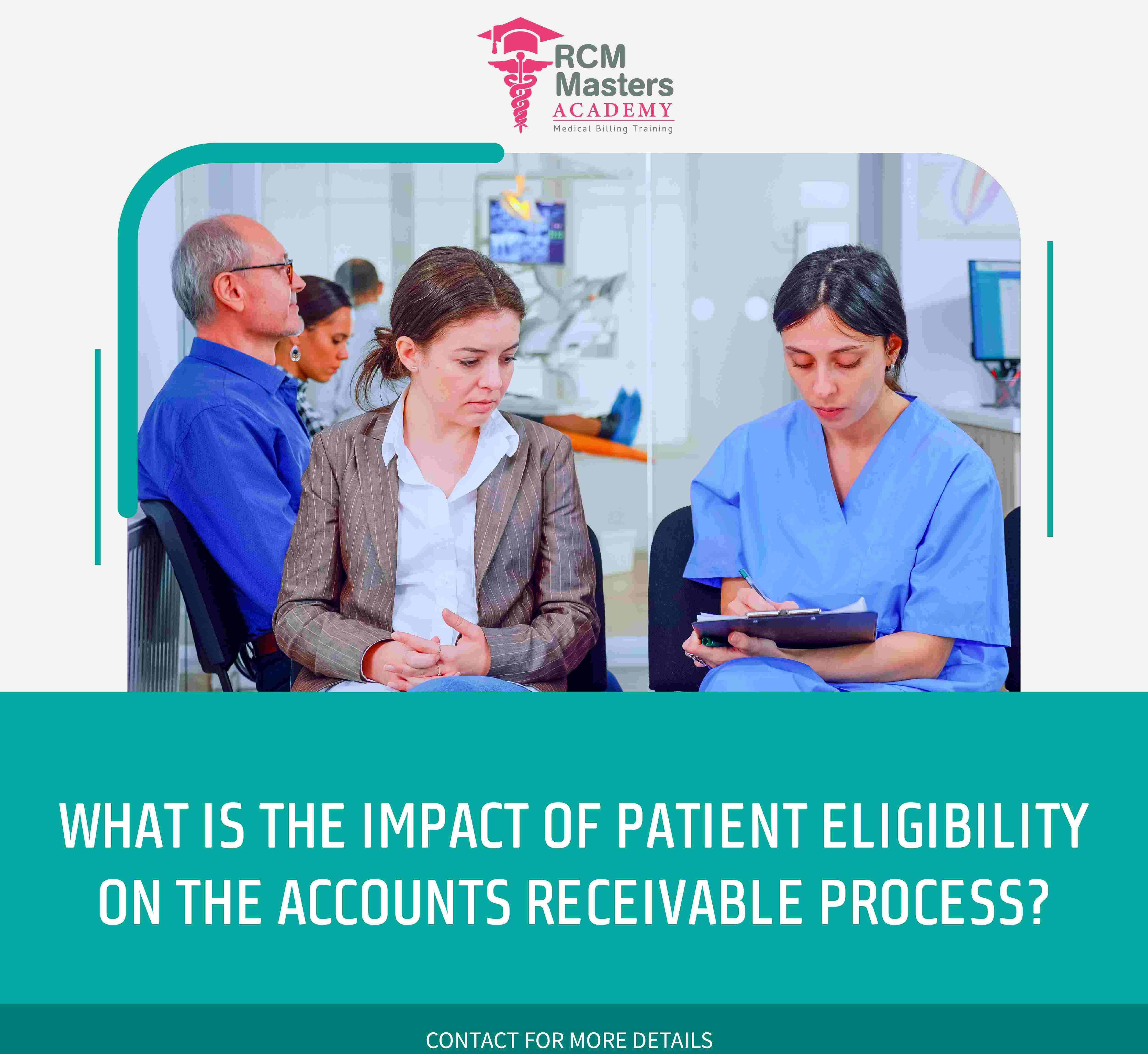 info@rcmmastersacademy.com
info@rcmmastersacademy.com

Patient eligibility is a critical component of the accounts receivable process in the healthcare industry. It refers to the determination of whether a patient is eligible to receive healthcare services and the extent of the coverage provided by their insurance plan. The impact of patient eligibility on the accounts receivable process is significant and can affect the revenue cycle of healthcare providers.
One of the primary impacts of patient eligibility on the accounts receivable process is the determination of the patient's financial responsibility. When a patient seeks healthcare services, their eligibility is verified to determine the extent of coverage provided by their insurance plan. If the patient is not covered, they may be required to pay for the services out of pocket. This verification process can be time-consuming and may delay the billing and collection process.
Another impact of patient eligibility on the accounts receivable process is the submission of claims to insurance companies. If a patient is eligible for coverage, the healthcare provider must submit a claim to the insurance company for reimbursement of the services provided. The accuracy of the patient's eligibility information is critical in ensuring that the claim is paid promptly and accurately. Any errors in the patient's eligibility information can lead to claim denials or delays in payment.
Patient eligibility can also impact the accounts receivable process through the management of denials and appeals. When a claim is denied by an insurance company, the healthcare provider must determine the reason for the denial and submit an appeal if necessary. Patient eligibility plays a crucial role in the appeals process, as the healthcare provider must provide documentation to prove that the patient was eligible for coverage at the time the services were provided.
The impact of patient eligibility on the accounts receivable process is also evident in the management of patient balances. When a patient is not eligible for coverage or has a high deductible, they may be responsible for paying a portion of the healthcare costs out of pocket. The healthcare provider must manage these patient balances and ensure that they are paid in a timely manner. Failure to manage patient balances can result in increased accounts receivable and decreased revenue for the healthcare provider.
Patient eligibility can also affect the management of bad debt. When patients are not eligible for coverage or are unable to pay their balances, their accounts may be sent to collections. The healthcare provider must determine the most effective method of collecting on these accounts while maintaining compliance with federal and state regulations.
In conclusion, patient eligibility plays a significant role in the accounts receivable process in the healthcare industry. It impacts the determination of patient financial responsibility, the submission of claims, the management of denials and appeals, the management of patient balances, and the management of bad debt. Healthcare providers must ensure that they have accurate patient eligibility information and effective processes in place to manage the impact of patient eligibility on their accounts receivable process. Failure to do so can lead to increased costs, decreased revenue, and compliance issues.
You can enroll for our Online Medical Billing Training here: